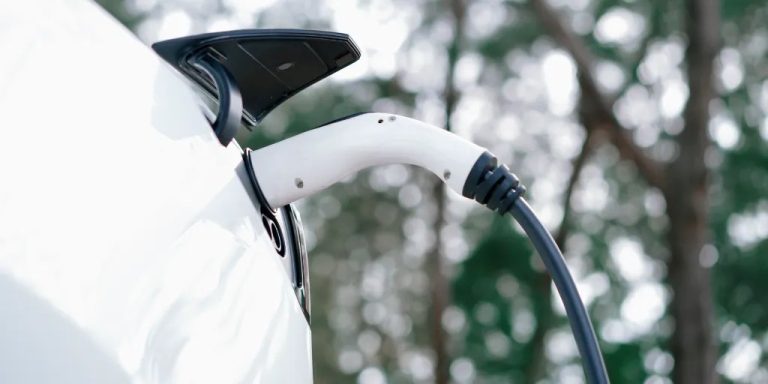Vijay Jayaraj
Electric vehicles (EVs) are hailed as the cornerstone of the fight against climate change and are expected to bring a cleaner, greener future. Just in July, the Biden-Harris administration announced billions of dollars in government support for electric vehicle manufacturing.
However, beneath the shiny surface of electric cars and bicycles, there are growing concerns about the safety risks of lithium-ion batteries, particularly their tendency to catch fire.
The rosy image of electric vehicles as environmental saviors is belied by their growing reputation as flammable hazards.
Lithium batteries are designed to store large amounts of energy in a compact space, which not only increases efficiency but also reduces risk. When these batteries overheat, short circuit, or suffer physical damage, they can catch fire and burn with alarming intensity.
New York is notorious for its numerous e-bike fires. All the cars on the cargo ship were burned in the ocean due to a fire in the electric car battery.
A recent fire in a container containing 33,000 pounds of lithium batteries at the Port of Montreal in Canada prompted the city to warn residents to stay indoors. The fire broke out at around 2:45 pm on September 23 and was not put out until 3 am the next day!
“Because of the amount of energy these batteries store, it took us a long time to put the fire out,” the fire chief said.
China real estate bans electric cars
China is now witnessing an increasing number of dangerous electric vehicle fire cases, so much so that electric vehicles are now banned from underground parking lots.
According to a Chinese source, “Hotels and other buildings in Hangzhou, Ningbo, Xiaoshan and other places in Zhejiang have banned electric vehicles from entering underground garages due to safety concerns, sparking heated discussions.”
On August 25, some netizens uploaded a notice from the owner of Huigang Building in Yinzhou District, Ningbo City. For safety reasons, the parking of electric vehicles is restricted and separate regulations are provided for electric vehicles.
The fact that China, the leader in the electric vehicle market, is taking such strict measures should be a wake-up call to the global electric vehicle industry. This is a clear acknowledgment that lithium battery fires pose significant risks, which cannot be ignored just because electric vehicles are touted as environmentally friendly.
Furthermore, it casts doubt on the EV crusaders’ assertion that EVs are less prone to fires than traditional combustion engine vehicles. If that's the case, why don't Chinese owners restrict fuel cars and electric cars?
Child Slavery and Toxic Byproducts
In addition to safety risks, the production of lithium-ion batteries also raises many environmental and ethical issues. Mining and processing the raw materials needed for these batteries, such as lithium, cobalt and nickel, are far from clean operations.
A significant portion of the world's cobalt, an important battery ingredient, comes from the Democratic Republic of Congo (DRC), where child labor is rife in the mining industry. Children as young as 7 work in hazardous conditions to extract minerals.
The Democratic Republic of Congo is believed to have the world's largest lithium reserves, with more than 6 million tonnes near the Manono region. The environmental damage caused by mining in the Democratic Republic of Congo is staggering. Vast tracts of land have been stripped bare, water sources have been polluted, and local ecosystems have been destroyed.
Much of the global market is controlled by two major global lithium producers in China's Jiangxi and Sichuan provinces. Extracting lithium from lepidolite ore produces toxic by-products such as thallium and tantalum and leads to severe water pollution.
NASA satellites can see colorful patterns of miles-long toxic lakes created by rare metal mines in China's deserts.
China and Asia Research Group said “lithium mining has caused irreversible damage to the ecology.” Chinese residents have reported health problems related to pollutants released during the production process.
At least one issue remains significantly underestimated: Tire wear and the resulting particulate pollution are significantly greater on relatively heavy electric vehicles than on conventional vehicles. This inconvenient fact is often glossed over by the media and policymakers, who continue to extol the “merits” of electric vehicles.
The romanticization of electric vehicles is another fabrication of a green fantasy that, overall, poses more threats to public health and safety than benefits. It's time to get real.
This comment was first published at City Hall on October 12, 2024.
Vijay Jayaraj is a scientific research assistant carbon monoxide2 allianceArlington, Virginia. he He holds a master's degree in environmental science from the University of East Anglia, UK, a postgraduate degree in energy management from Robert Gordon University, and a bachelor's degree in engineering from Anna University, India.
Relevant
